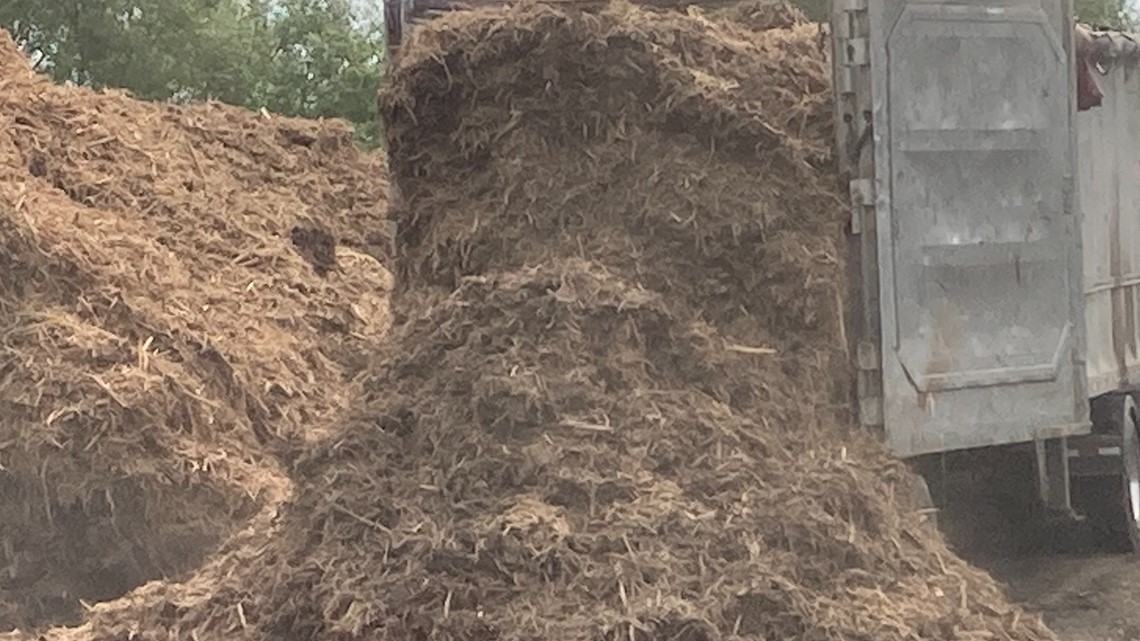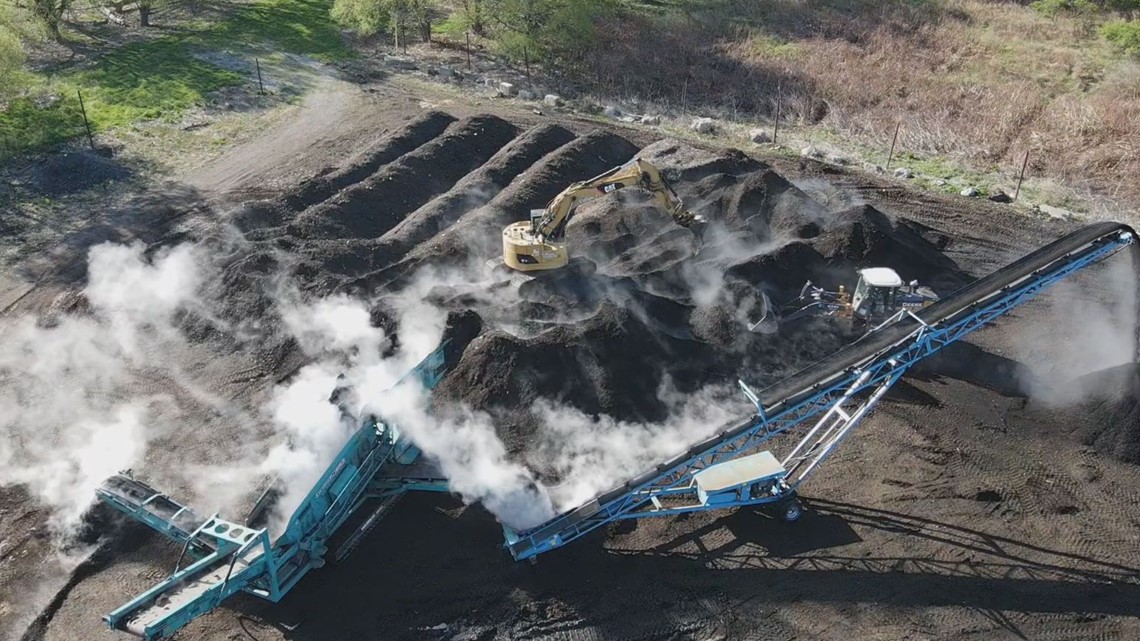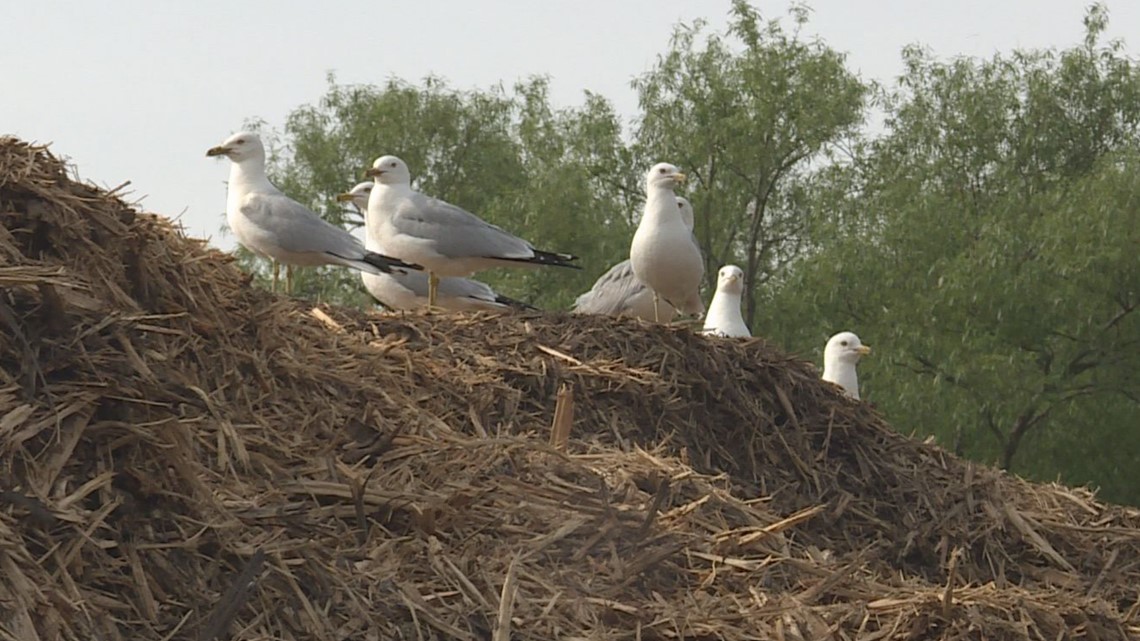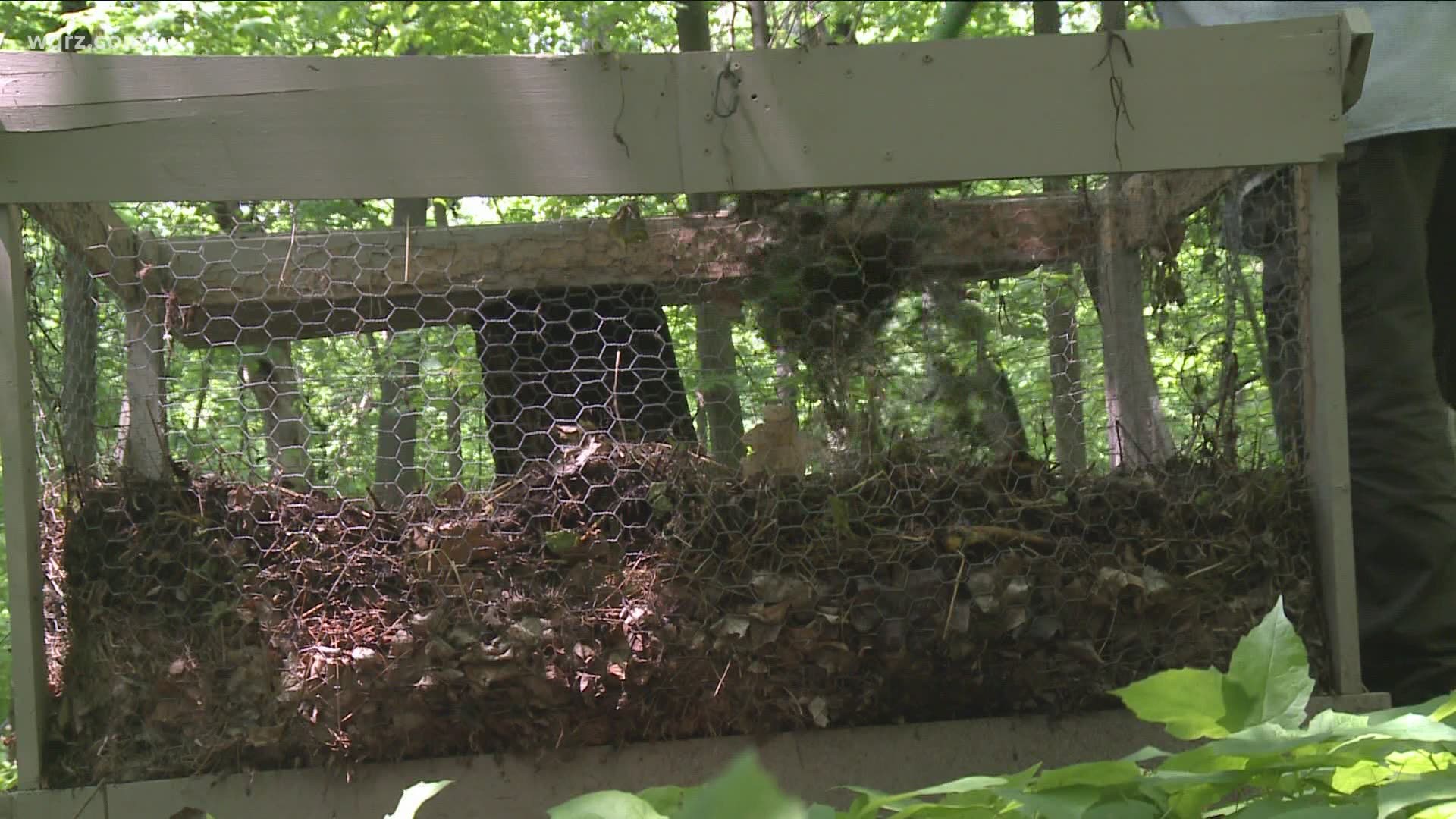BUFFALO, N.Y. — The United States wastes 80 billion pounds of food every year, making us one of the world's worst on that list of shame. Food is the single largest component taking up U.S. landfills.
So it makes a lot of sense to not only reduce our waste individually, but to recycle as much of that as possible. Composting is a great way to achieve this on both a large and small scale.
Here in Western New York, Buffalo River Compost is accomplishing this on a massive scale.
"We divert almost 8 tons of food waste a week from going into a landfill, which is just unbelievable to me," said Brian Murphy, general manager for Buffalo River Compost. "And then we turn that, we mix it with other waste products such as the wood behind me and the wood chips, and you turn that into a soil amendment, which is what compost is."


It's a process that is very precise and adheres to strict state and local guidelines. In addition to food waste, Murphy says that the nascent compost is blended with a number of other discarded materials.
"We take a zoo blind from the Buffalo Zoo, we mix that with some seaweed, we mix it with fruits, vegetables, breads, flowers, sometimes meats, brew waste and distillery waste, and then different herbation and wood chips," Murphy said. "A very secret special blend."


After it's mixed it's a matter of time and management until it breaks down into rich black compost. Then the cycle begins again, Murphy explains that it's used as a soil enrichment that helps new plants and vegetables grow.
"It's a living breathing system that's strong with microbes and fungus and then to put that back in, it absorbs Carbon Dioxide, moisture, and then is a natural fertilizer," Murphy said.
Even the site itself is beneficial to local wildlife. It attracts birds and animals of all kinds.
"So it's its own ecosystem," Murphy said. "And nature reacts. They smell that organic matter and different animals want to capitalize on different opportunities, for sure."


Buffalo River Compost even offers educational opportunities, hosting schools and organizations. It's an example of the cycle of life that one can see, feel, and smell, and because it can be done at home, it's a way for everyone to help preserve life on our planet. Murphy is a firm believer that we can all help.
"People really need to get into composting, it does make a difference, everybody does need to do it at home, there's lots to learn, and it's fun at the same time," Murphy said.

